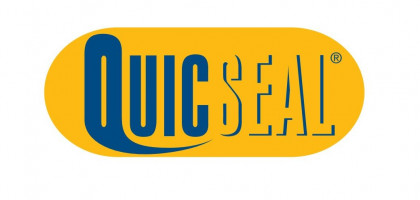-
Singapore
Copyright © 2025 Powered by BCI Media Group Pty Ltd
Confirm Submission
Are you sure want to adding all Products to your Library?
Contact Detail

If you are planning to switch up the look of your walls and floors with tiles, it will only look at its best when you have stuck it on perfectly. If you use anything other than tile adhesives such as sand and cement-based mortar, there can be bonding issues between the tiles to the walls. To ensure strong adhesive strength, use tile adhesives for your renovation projects. Choosing the right tile adhesives is thus equally as important as choosing your dream tiles. There are mainly two different types of adhesives: ready-mixed pastes and powdered adhesives.
To decide which to use, for starters, the ready-mixed option comes straight out of the bucket, making it fast and convenient to use. The only downside is that they cannot be used on larger ceramic tiles as the drying process does not perform well under large surface areas. This means that the adhesive would not fully dry towards the middle of the tile. The tiles might fail to attach and eventually fall off the wall. To make your money worth it, only go for this type of adhesive only if your tiles are relatively small in size. Additionally, ready-mixed pastes are generally used for wall tiles and should not be applied on floors.
On the other hand, powdered adhesives can be used on floors made of timbre and concrete. This type of adhesive is first mixed with water and not only will it dry throughout, the adhesive bed helps to absorb stress from foot traffic when installed under floor tiles. Delivering a stronger bond, it can be used to stick ceramic, porcelain and natural stone tiles onto almost any substrate. As compared to ready-mixed pastes, it is better to invest in powdered adhesives for high quality results.
 At QUICSEAL, we have tile adhesives that offer more degree of flexibility. For instance, Tileflex Super (QUICSEAL 680) offers extremely high flexibility and adhesion strength to most surfaces. The mortar is also resistant to water and mild chemicals, making it perfect for bonding tiles in areas subjected to chlorine contact such as swimming pools.
At QUICSEAL, we have tile adhesives that offer more degree of flexibility. For instance, Tileflex Super (QUICSEAL 680) offers extremely high flexibility and adhesion strength to most surfaces. The mortar is also resistant to water and mild chemicals, making it perfect for bonding tiles in areas subjected to chlorine contact such as swimming pools.
Similar to Tileflex Super’s resistance to water, QUICSEAL 602+604 – two-component flexible tile adhesive is another product that can adhere well in swimming pools, jacuzzis, fountains and more. As for bonding moisture-sensitive natural and artificial stones which require a fast-setting adhesive, QUICSEAL 615 will be the tile adhesive to choose.
Nobody wants an unevenly tiled floor or wall that will take even more effort to fix again. Therefore, doing a little research into what type of tile adhesive is suitable for your tiling project is necessary. Before tiling your floor, you can also have a dry run of laying out the tiles first to make things easier. You will be able to roughly know the final placement as well as to decide on the spaces between each tile. You should also make sure that your floor is thoroughly cleaned of any dirt or debris that can come in the way of the installation. With that, you will do just fine in attaining your dream evenly-tiled floor.



